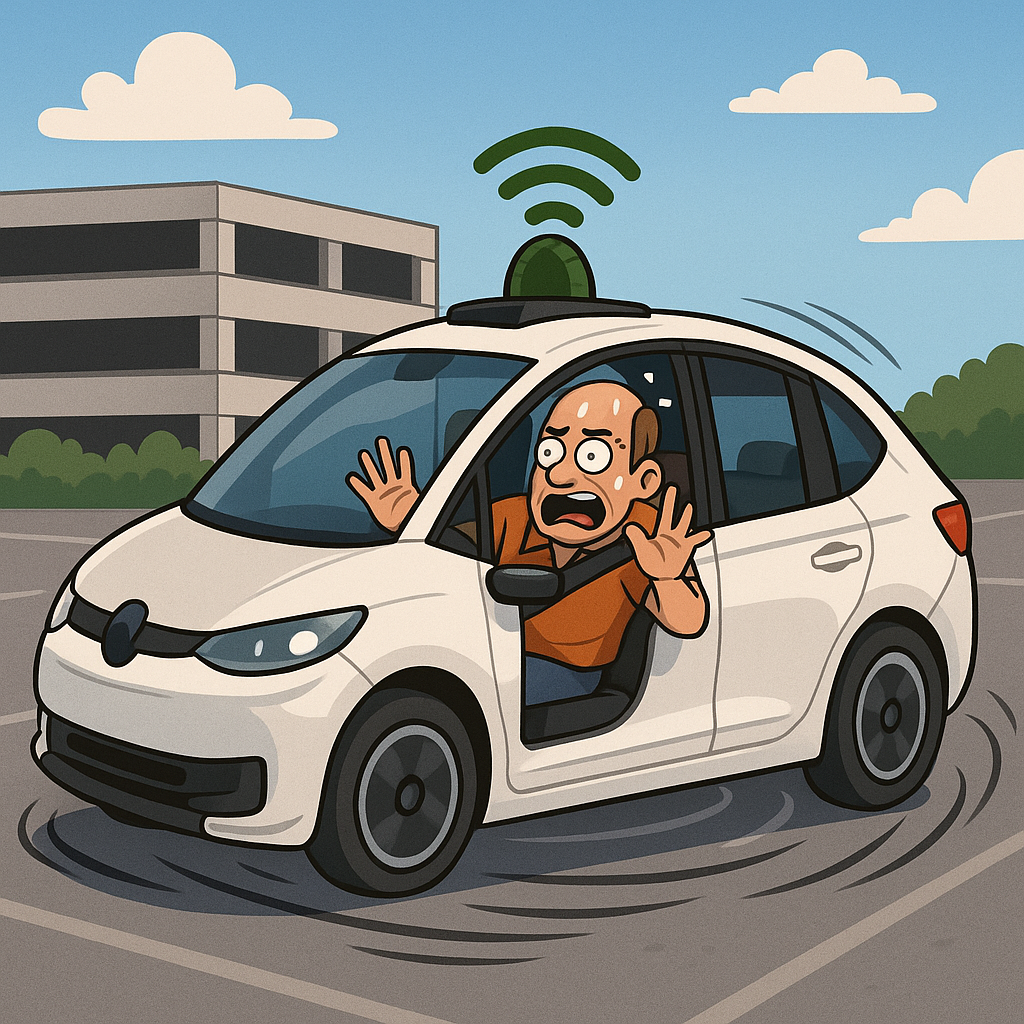Many families in the United States are suing big technology companies, saying that they are exposing children to harmful products. One person, Taylor Little, shared their story of addiction to social media, which led to suicide attempts and years of feeling very sad. Taylor calls the tech companies “big, bad monsters” who give addictive and damaging things to kids. The lawsuit is one of the biggest ever in Silicon Valley and is against Meta (which owns Facebook and Instagram), TikTok, Google, and Snap Inc (which owns Snapchat). The families’ lawyers say that these platforms are made to be harmful. They use the case of Molly Russell, a British girl who died by suicide after seeing self-harm things on social media, as an example of the dangers for teenagers.
A judge recently said that the companies can’t use the First Amendment or Section 230 of the Communications Decency Act to stop the lawsuit. The judge said that things like bad parental controls and not checking ages properly are not about freedom of speech. This was seen as a big win for the families. The companies say that the claims are not true and they will fight back.
Taylor, who lives in Colorado, says that they were so addicted to social media that they felt really bad when their phone was taken away. They saw pictures of people hurting themselves when they were only 11 years old and there was no warning. Taylor also had a hard time with things about body image and eating disorders. They say it felt like they were being attacked all the time. The lawyers for the families are focusing on how the platforms are made, not on individual posts or pictures. They say that the apps have things that make people addicted and hurt themselves.
Meta said that they feel bad for the families and that they care about keeping teens safe online. TikTok didn’t say anything, and Google said that the claims are not true and that they work hard to protect kids on their platforms. Snapchat said that their platform is made to take away the pressure to be perfect and that they check all the things before a lot of people see them.
Taylor knows about Molly Russell, who died after seeing bad things on Instagram. Taylor feels lucky to be alive and is determined to keep going with the lawsuit. They think that the tech companies know that their platforms are hurting people, but they care more about making money. Taylor hopes that they can make social media better by winning the lawsuit and making the companies change, because they don’t think the companies will do it on their own.
Original news source: ‘I was addicted to social media – now I’m suing Big Tech’ (BBC)
Listen
Slow
Normal
Fast
Group or Classroom Activities
Warm-up Activities:
– News Summary
Instructions: Divide the class into small groups. Each group should read the article provided and create a brief news summary. Encourage students to focus on the main points, such as the lawsuit against technology companies, the impact on children’s mental health, and the recent legal developments. Afterward, each group will present their summary to the class.
– Opinion Poll
Instructions: Create a list of statements related to the article’s content, such as “Social media platforms are responsible for monitoring content that may harm children.” Students will move around the room and mark whether they agree or disagree with each statement. After the poll, lead a discussion on the reasons behind their opinions.
– Vocabulary Pictionary
Instructions: Select keywords from the article such as “lawsuit,” “addiction,” “social media,” “First Amendment,” and “parental controls.” Write each word on an individual slip of paper. Students will take turns drawing a word from a hat and drawing the concept on the board without writing any words or numbers. The rest of the class must guess the word based on the drawing.
– Pros and Cons
Instructions: Ask students to work in pairs and discuss the pros and cons of social media use for young people, as highlighted in the article. They should consider aspects like freedom of expression, access to information, mental health risks, and the role of technology companies. Each pair will then share their findings with the class.
– Future Predictions
Instructions: Have students imagine they are 10 years in the future and the lawsuit mentioned in the article has had a significant impact on how social media platforms operate. In pairs or small groups, students will discuss and write down their predictions about the changes that have occurred and how these changes have affected society. Share and compare the predictions as a class.
Comprehension Questions:
1. What are the families in the United States doing to big technology companies?
2. What did Taylor Little experience due to their addiction to social media?
3. Which companies are being sued in one of the largest lawsuits in Silicon Valley?
4. What argument did the judge reject from the tech companies in regard to the lawsuit?
5. What are the family lawyers focusing on in their case against the social media platforms?
6. How has Meta responded to the claims made by the families?
7. What kind of content did Taylor see on social media at the age of 11 that affected them?
8. What is Taylor’s goal in continuing the lawsuit against the tech companies?
Go to answers ⇩
Listen and Fill in the Gaps:
Many families in the United States are suing big technology (1)______, saying that they are exposing children to harmful products. One person, Taylor Little, shared their story of (2)______ to social media, which led to suicide attempts and years of feeling very sad. Taylor calls the tech companies “big, bad monsters” who give (3)______ and (4)______ things to kids. The lawsuit is one of the biggest ever in Silicon Valley and is against Meta (which owns Facebook and Instagram), TikTok, Google, and Snap Inc (which owns Snapchat). The families’ lawyers say that these platforms are made to be harmful. They use the case of Molly Russell, a British girl who died by (5)______ after seeing self-harm things on social media, as an example of the dangers for teenagers.
A judge recently said that the companies can’t use the First Amendment or Section 230 of the Communications Decency Act to stop the lawsuit. The judge said that things like bad (6)______ controls and not (7)______ ages properly are not about freedom of speech. This was seen as a big win for the families. The companies say that the claims are not true and they will fight back.
Taylor, who lives in Colorado, says that they were so addicted to social media that they felt really bad when their phone was (8)______ away. They saw pictures of people hurting themselves when they were only 11 years old and there was no warning. Taylor also had a hard time with things about body (9)______ and (10)______ disorders. They say it felt like they were being attacked all the time. The lawyers for the families are (11)______ on how the platforms are made, not on (12)______ posts or pictures. They say that the apps have things that make people addicted and hurt themselves.
Meta said that they feel bad for the families and that they care about keeping teens safe online. TikTok didn’t say anything, and Google said that the claims are not true and that they work hard to protect kids on their platforms. Snapchat said that their platform is made to take away the (13)______ to be perfect and that they check all the things before a lot of people see them.
Taylor knows about Molly (14)______, who died after seeing bad things on Instagram. Taylor (15)______ lucky to be alive and is determined to keep going with the lawsuit. They think that the tech companies know that their platforms are (16)______ people, but they care more about making money. Taylor hopes that they can make social media better by winning the lawsuit and making the companies change, because they don’t think the companies will do it on their own.
Go to answers ⇩
Discussion Questions:
Students can ask a partner these questions, or discuss them as a group.
1. What is your definition of social media addiction?
2. How would you feel if you found out a friend was addicted to social media?
3. Do you like the idea of suing companies for making addictive products?
4. Do you think it’s fair to call tech companies “big, bad monsters”? Why or why not?
5. Have you or someone you know ever felt pressured by images on social media? Can you share the experience?
6. What do you think about the argument that social media platforms are designed to be harmful?
7. How would you feel if you saw harmful content on social media without any warning?
8. Do you believe that social media companies care about the safety of their users? Why or why not?
9. What is your opinion on the effectiveness of parental controls on social media platforms?
10. Do you think that social media companies should be responsible for checking the age of their users? Why?
11. Have you ever felt “attacked” by content on social media? How did you handle it?
12. What do you think about the statement that Snapchat is made to take away the pressure to be perfect?
13. Do you think that winning a lawsuit can make social media better? Why or why not?
14. In your opinion, what changes should social media companies make to protect young users?
15. Do you believe that making money is more important to tech companies than user safety? Can you explain your answer?
Individual Activities
Vocabulary Meanings:
Match each word to its meaning.
Words:
1. technology
2. addiction
3. harmful
4. platforms
5. lawsuit
6. social media
7. dangers
8. companies
Meanings:
(a) Websites or applications where people can connect and share information
(b) A legal case brought to a court of law
(c) Being unable to stop doing something, even if it is bad for you
(d) The use of computers and other electronic devices
(e) Causing damage or injury
(f) The risks or potential harm associated with something
(g) Businesses or organizations that provide goods or services
(h) Online platforms like Facebook, Instagram, and Snapchat
Go to answers ⇩
Multiple Choice Questions:
1. What are families in the United States suing big technology companies for?
(a) Making too much money
(b) Creating addictive video games
(c) Not providing enough parental controls
(d) Exposing children to harmful products
2. Who is Taylor Little?
(a) A judge in the lawsuit against tech companies
(b) Someone who shared their story of addiction to social media
(c) The CEO of Meta
(d) The lawyer representing the families
3. Which companies are included in the lawsuit?
(a) Meta, TikTok, Google, and Snap Inc
(b) Apple, Microsoft, Amazon, and Twitter
(c) Netflix, Spotify, Hulu, and Pinterest
(d) Samsung, Sony, LG, and Nintendo
4. What did a judge recently rule in favor of?
(a) Dismissing the lawsuit against the tech companies
(b) Granting the tech companies immunity from the lawsuit
(c) Allowing the lawsuit to proceed against the tech companies
(d) Requiring the families to pay damages to the tech companies
5. What did Taylor experience as a result of their addiction to social media?
(a) Increased self-confidence and happiness
(b) Improved body image and self-esteem
(c) Suicide attempts and years of feeling very sad
(d) A strong sense of community and belonging
6. What is the focus of the lawyers representing the families in the lawsuit?
(a) The harmful content posted by specific individuals
(b) The lack of privacy settings on the platforms
(c) The companies’ failure to monitor user activity
(d) How the platforms are made, not individual posts or pictures
7. How did Meta respond to the lawsuit?
(a) They denied the claims and accused the families of seeking financial gain
(b) They expressed sympathy for the families and emphasized their commitment to online safety
(c) They remained silent and did not comment on the lawsuit
(d) They admitted to the harmful effects of their platforms and promised to make changes
8. What does Taylor hope to achieve through the lawsuit?
(a) Making social media better and forcing the companies to change
(b) Shutting down all social media platforms
(c) Receiving a large financial settlement from the tech companies
(d) Becoming a spokesperson for online safety awareness
Go to answers ⇩
True or False Questions:
1. The companies involved in the lawsuit deny the claims and vow to fight back.
2. The families’ lawyers argue that these platforms are intentionally designed to be harmful, citing the case of Molly Russell, a British girl who died by suicide after seeing self-harm content on social media.
3. Taylor does not hope that winning the lawsuit will force the tech companies to change their platforms and make social media safer for users.
4. The lawsuit is not one of the biggest ever in Silicon Valley and is not against Meta (which owns Facebook and Instagram), TikTok, Google, and Snap Inc (which owns Snapchat).
5. Taylor, who lives in Colorado, experienced addiction to social media from a young age and faced issues related to body image and eating disorders.
6. Families in the United States are not suing big technology companies, claiming that they are exposing children to harmful products.
7. One person named Taylor Little shared their story of addiction to social media, which led to suicide attempts and years of feeling very sad.
8. A judge recently ruled that the companies can use the First Amendment or Section 230 of the Communications Decency Act to dismiss the lawsuit, considering issues like bad parental controls and age verification as inseparable from freedom of speech.
Go to answers ⇩
Write a Summary:
Write a summary of this news article in two sentences.
Check your writing now with the best free AI for English writing!
Writing Questions:
Answer the following questions. Write as much as you can for each answer.
Check your answers with our free English writing assistant!
1. What are the families in the United States accusing big technology companies of?
2. How did social media affect Taylor Little’s life?
3. What did the judge decide about the companies’ defense using the First Amendment and Section 230?
4. What approach are the families’ lawyers taking in the lawsuit against the tech companies?
5. What are the responses of the tech companies to the allegations made by the families?
Answers
Comprehension Question Answers:
1. What are the families in the United States doing to big technology companies?
The families are suing big tech companies because they say the companies are exposing children to harmful products.
2. What did Taylor Little experience due to their addiction to social media?
Taylor experienced addiction to social media, which led to suicide attempts and years of feeling very sad.
3. Which companies are being sued in one of the largest lawsuits in Silicon Valley?
Meta, TikTok, Google, and Snap Inc are the companies being sued.
4. What argument did the judge reject from the tech companies in regard to the lawsuit?
The judge rejected the argument that the First Amendment or Section 230 of the Communications Decency Act could be used to stop the lawsuit.
5. What are the family lawyers focusing on in their case against the social media platforms?
The family lawyers are focusing on how the platforms are designed to be addictive and harmful, not on individual posts or pictures.
6. How has Meta responded to the claims made by the families?
Meta said they feel bad for the families and that they care about keeping teens safe online.
7. What kind of content did Taylor see on social media at the age of 11 that affected them?
Taylor saw pictures of people hurting themselves without any warnings.
8. What is Taylor’s goal in continuing the lawsuit against the tech companies?
Taylor’s goal is to make social media safer by winning the lawsuit and forcing the companies to change their ways.
Go back to questions ⇧
Listen and Fill in the Gaps Answers:
(1) companies
(2) addiction
(3) addictive
(4) damaging
(5) suicide
(6) parental
(7) checking
(8) taken
(9) image
(10) eating
(11) focusing
(12) individual
(13) pressure
(14) Russell
(15) feels
(16) hurting
Go back to questions ⇧
Vocabulary Meanings Answers:
1. technology
Answer: (d) The use of computers and other electronic devices
2. addiction
Answer: (c) Being unable to stop doing something, even if it is bad for you
3. harmful
Answer: (e) Causing damage or injury
4. platforms
Answer: (a) Websites or applications where people can connect and share information
5. lawsuit
Answer: (b) A legal case brought to a court of law
6. social media
Answer: (h) Online platforms like Facebook, Instagram, and Snapchat
7. dangers
Answer: (f) The risks or potential harm associated with something
8. companies
Answer: (g) Businesses or organizations that provide goods or services
Go back to questions ⇧
Multiple Choice Answers:
1. What are families in the United States suing big technology companies for?
Answer: (d) Exposing children to harmful products
2. Who is Taylor Little?
Answer: (b) Someone who shared their story of addiction to social media
3. Which companies are included in the lawsuit?
Answer: (a) Meta, TikTok, Google, and Snap Inc
4. What did a judge recently rule in favor of?
Answer: (c) Allowing the lawsuit to proceed against the tech companies
5. What did Taylor experience as a result of their addiction to social media?
Answer: (c) Suicide attempts and years of feeling very sad
6. What is the focus of the lawyers representing the families in the lawsuit?
Answer: (d) How the platforms are made, not individual posts or pictures
7. How did Meta respond to the lawsuit?
Answer: (b) They expressed sympathy for the families and emphasized their commitment to online safety
8. What does Taylor hope to achieve through the lawsuit?
Answer: (a) Making social media better and forcing the companies to change
Go back to questions ⇧
True or False Answers:
1. The companies involved in the lawsuit deny the claims and vow to fight back. (Answer: True)
2. The families’ lawyers argue that these platforms are intentionally designed to be harmful, citing the case of Molly Russell, a British girl who died by suicide after seeing self-harm content on social media. (Answer: True)
3. Taylor does not hope that winning the lawsuit will force the tech companies to change their platforms and make social media safer for users. (Answer: False)
4. The lawsuit is not one of the biggest ever in Silicon Valley and is not against Meta (which owns Facebook and Instagram), TikTok, Google, and Snap Inc (which owns Snapchat). (Answer: False)
5. Taylor, who lives in Colorado, experienced addiction to social media from a young age and faced issues related to body image and eating disorders. (Answer: True)
6. Families in the United States are not suing big technology companies, claiming that they are exposing children to harmful products. (Answer: False)
7. One person named Taylor Little shared their story of addiction to social media, which led to suicide attempts and years of feeling very sad. (Answer: True)
8. A judge recently ruled that the companies can use the First Amendment or Section 230 of the Communications Decency Act to dismiss the lawsuit, considering issues like bad parental controls and age verification as inseparable from freedom of speech. (Answer: False)
Go back to questions ⇧















